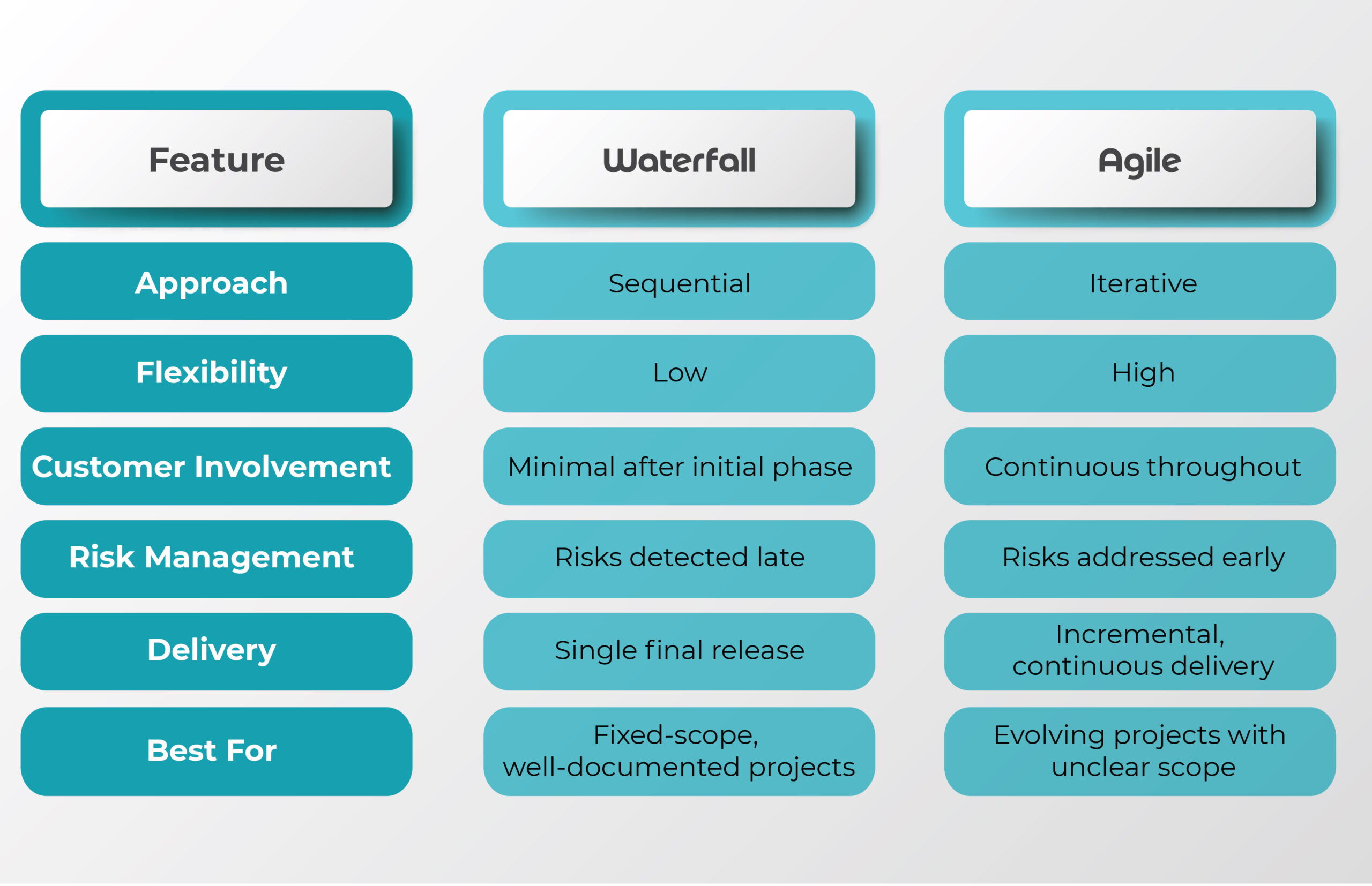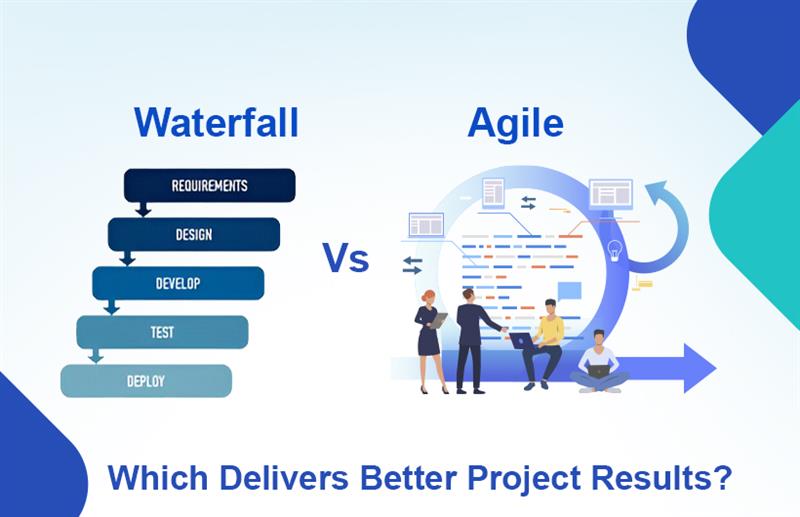The selection process of a suitable development methodology is what determines the success or failure of a project. Agile and Waterfall are the two competitors in software development, and they both appear to be emerging trends, but do these methods yield the correct parabola of the project results?
This blog analyzes the Waterfall vs Agile controversy, identifies the Agile Waterfall differences, and advises businesses on what is better to use.
What is a Waterfall Model?
The waterfall Model is a linear and sequential software development model. Some stages are not begun until the previous one is finished; they usually follow the paradigm of:
1. Requirements gathering
2. System design
3. Implementation
4. Testing
5. Deployment
6. Maintenance
It is a plan-driven and rigid approach, so it is best applicable to the projects that are characterized by clear requirements and produce few anticipated changes.
Major Characteristics of Waterfall:
- Foreseeable time schedule and budgets
- Easy to operate and follow up
- Ideally applicable in fixed-scope projects
- Lower adaptability to introduce changes in the middle of the project
What Is Agile Methodology?
Agile is iterative and flexible and pays attention to teamwork, customer feedback, and quick releases. The agile teams operate on small development cycles referred to as sprints, making the product improved over and over as a response to the feedback.
Core Principles of Agile:
- Adaptive planning and continuous improvement
- Emphasis on customer collaboration
- Fast delivery of functional software
- Welcomes change—even late in development
Agile is best for projects where requirements are expected to evolve or when the client needs early and frequent deliverables.
Waterfall vs Agile: A Direct Comparison
Let’s break down the Agile Waterfall difference across key parameters:

Pros and Cons of Each Approach
Waterfall Pros:
- Clear structure and documentation
- Simple project tracking
- Easy to manage with inexperienced teams
Waterfall Cons:
- Inflexible to change
- Late discovery of issues
- Poor fit for dynamic or evolving projects
Agile Pros:
- Faster time-to-market
- Continuous client feedback
- Adaptability to change
Agile Cons:
- Less predictability in scope, time, cost
- Requires more client involvement
- May lack formal documentation
Which Model Delivers Better Project Results between Waterfall vs Agile?
The answer depends on the project. Neither is universally “better.” Instead, the right choice depends on the complexity, clarity of requirements, and the client’s flexibility.
Agile works best when:
- The project scope is unclear or likely to change
- You need to launch quickly and improve over time
- The client can collaborate regularly
Waterfall is suitable when:
- Requirements are fixed and clearly defined
- The client expects a single, complete delivery
- Regulatory compliance requires detailed documentation
Hybrid Approach: Can You Combine Agile and Waterfall?
Yes. Many modern development teams use a hybrid model, often called “Water-scrum-fall” or Agile-fall, blending Waterfall’s planning structure with Agile’s flexibility.
- Waterfall for planning, compliance, and documentation
- Agile for development and delivery
This gives teams predictability without sacrificing adaptability—often the best of both worlds.
Real-World Use Cases
Waterfall Use Cases:
- Government and defence projects
- Infrastructure and hardware systems
- Legacy software systems with strict documentation needs
Agile Use Cases:
- SaaS applications
- Mobile app development
- Startups and innovation-driven products
So, Which Method Should You Choose?
It comes down to project type, team experience, stakeholder involvement, and expected change. Agile is the right approach in case your project needs to be fast, adaptable and always in development. Waterfall may suit you in case your project has specific requirements and is not very tolerant in case of change.
However, the question of selection should not be a big problem as the success in its implementation depends on robust technical knowledge, communication, and quality control.
What Makes Monarch Innovation the Best Software Development Company?
It is important to know at Monarch Innovation that there is no similar project. We have a team of highly qualified engineers and project managers who select the suitable development process- Agile, Waterfall or both- to the appropriate procedures delivery manner and of high quality.
Constructing a powerful enterprise framework or an interactive mobile application, Monarch Innovation brings:
A high level of practice in Waterfall and Agile software development. Cross-industry experience in such areas as healthcare, engineering, manufacturing and adherence to quality, expediency and customer satisfaction
Let’s build smarter, not harder. Contact Monarch Innovation, the best software development company today to discuss your project.





